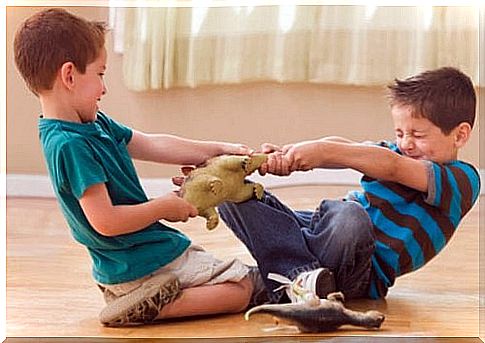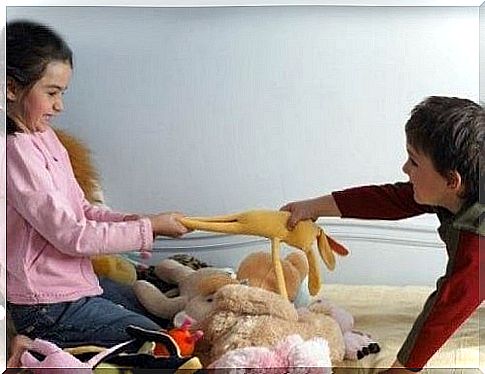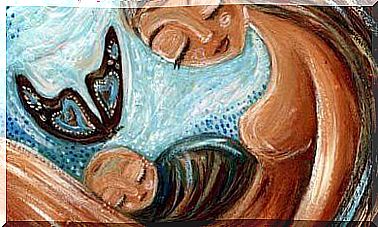Selfish Children: They Are Not Born, They Become Like This

Selfish children are the result of bad upbringing. You have to be aware of it.
Selfish by nature
We have all been selfish at times, because the perfect human being doesn’t exist. When it bothers us to lend our possessions, we sadden if another person benefits from something that could only be ours, we refuse to take a simple action that could improve someone else’s life … In all these cases we behave selfishly .
Some research shows that always thinking about yourself putting yourself above others and taking advantage of the weaknesses of those around us, or being selfish, is the consequence of a gene.
Selfishness is also used to explain some important discoveries such as that of the selfish gene which represents a new contribution to the modern theory of evolution and which explains why this feeling is present in humans.
However, even if we are born with a natural inclination to selfishness, we must not use it as a pretext to be.
Let’s go back to the beginning: human beings, by nature, are selfish, but also friendly and supportive. We are characterized by a mixture of feelings and values that emerge from time to time.
It is for this reason that it is up to parents to find a balance in the behavior of their children.

Social tension vs selfishness
If you have more than one child, you will certainly be used to mediating in their discussions. A toy, a candy, the seat in front of the television, your affection and even the yellow leaf that has fallen from the tree ignite their disputes.
When two children both want the same thing at the same time, they claim it without hesitation.
Having more than one child, however, can also serve to show them the value and importance of sharing. When they have one or more siblings, children grow up exchanging all their belongings, sharing the love of their parents, and even a sandwich can become a bite for everyone.
A similar dynamic occurs in nurseries. A child who interacts every day with other peers, with whom he plays and exchanges toys and the school space will be formed for sharing.
That said, a child’s behavior is conditioned by his parent’s education. To this end, below are some of the causes that cause a child to be selfish.
The over-protection
Over-protection during the early stages of life causes great emotional and behavioral disturbances.
However, stopping over-protecting a trafficked child, for example following the death of an over-protective parent or the birth of a frail baby that needs a lot of care, can awaken the feeling of abandonment in the child in question.
Children can develop a feeling of loss that often ends up activating their selfishness.
When they get back the boundless attention of another family member, they don’t share it with anyone else, for no reason whatsoever.
Another case of over-protection occurs when the child in question is born with some physical ailment. A deaf child, for example, who will grow up among adults and other children with full hearing abilities may be over-protected. Other family members, including other children, can give him a special treat that will accompany the little one as he grows up and will make him feel very comfortable.
The time will come, however, when the child with disabilities will become aware of the greater privileges destined for him, inside and outside the home, and will believe that he must always receive special treatment above others.
Such a condition will undoubtedly awaken his selfishness.
Selfish children are not born… they become them

To contribute to the education of your little ones and, above all, to prevent them from becoming selfish children, we have some tips for you.
First of all, you need to show them the importance of friendship and how to be good friends.
Then, change your attitude and say “no” to over-protection.
If the child has a pathology or a physical disability, it will not help to raise him under a glass bell. Sooner or later he will have to relate to society and fend for himself, observe his mistakes and learn from them.
Whether you like it or not, he will make decisions that will be more or less correct, he will love, suffer and experience all that life has to give him or take away from him.
Don’t educate selfish children. Teach them from an early age to share, to love their fellowmen, to be empathetic and selfless.
He must learn to give without expecting anything in return. Teach him to give gifts and to enjoy the joy of the celebrated.









